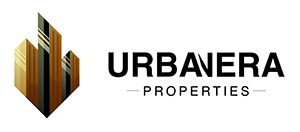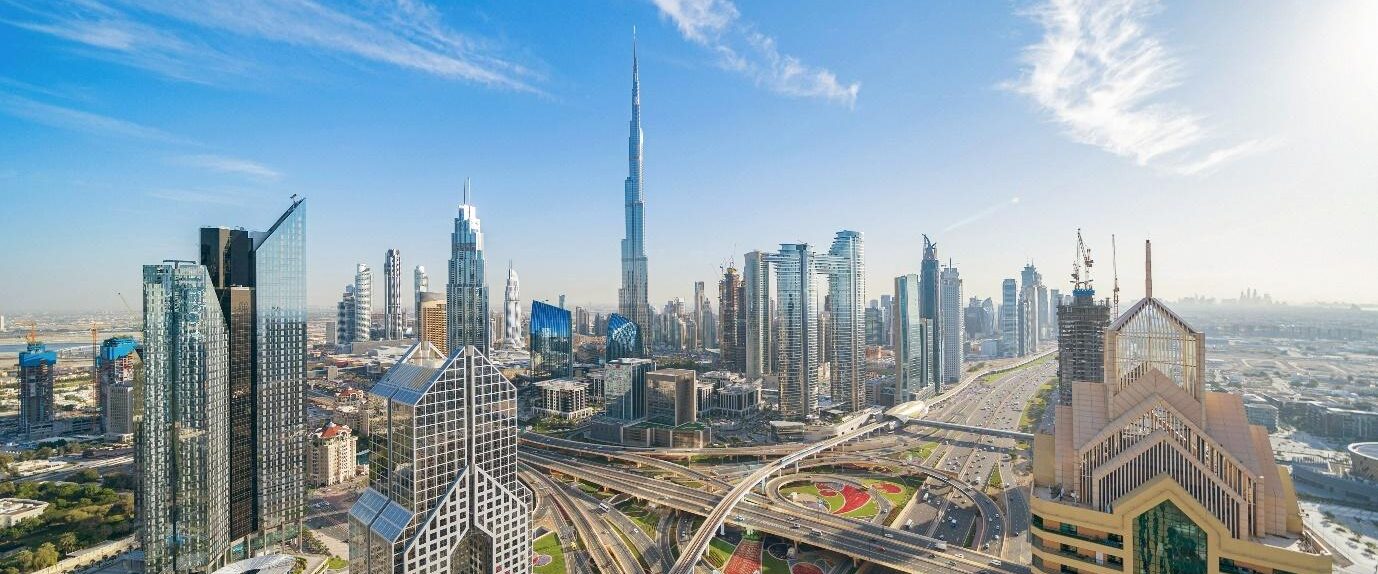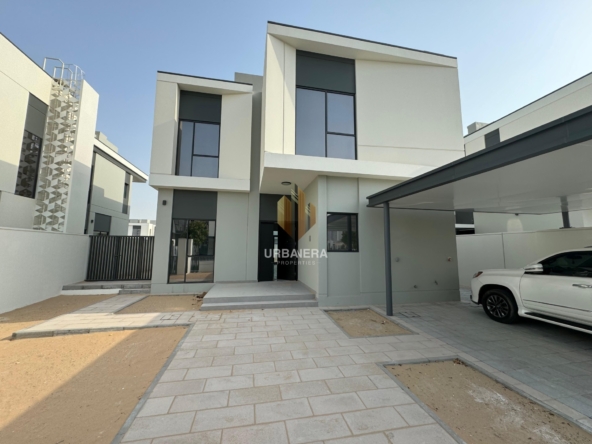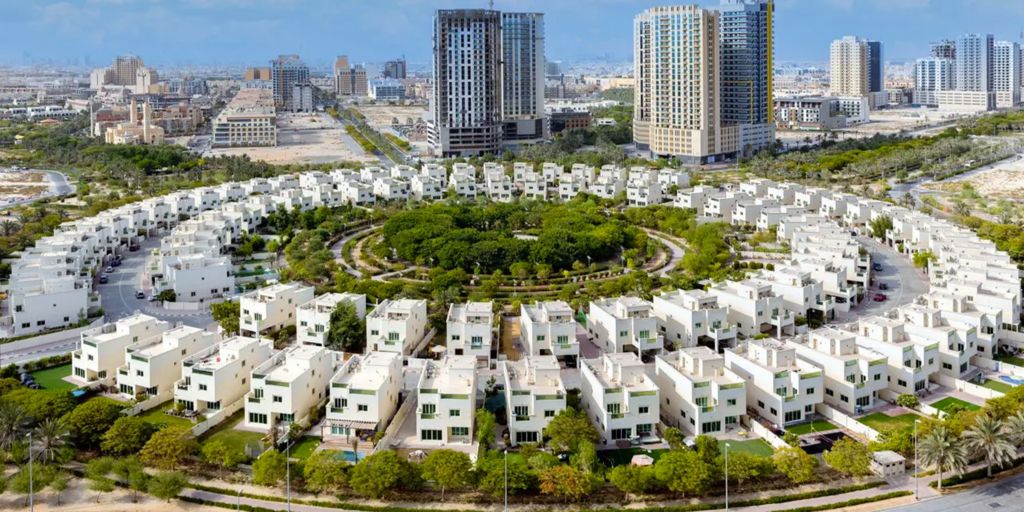Dubai, the metropolis of the United Arab Emirates, has converted to a global hub for luxurious lifestyle. With its soaring skyscrapers, pristine beaches, and world-class amenities, Dubai offers an unparalleled lifestyle for discerning expats. This guide delves into the world of Dubai’s luxury real estate market, equipping you with the knowledge to navigate this exciting investment opportunity.
Investing in Dubai’s Luxury Real Estate Market
Dubai’s luxury real estate market is a haven for international investors seeking a combination of opulent living, strong rental yields, and a tax-friendly environment. Expats can choose from a diverse range of freehold properties, including magnificent beachfront villas on Palm Jumeirah, sprawling mansions in Emirates Hills, or ultra-modern penthouses overlooking the iconic Burj Khalifa.
Here are some compelling reasons to invest in Dubai’s luxury real estate market:
- Thriving Economy: Dubai boasts a robust and diversified economy, fuelled by tourism, trade, and innovation. This economic strength translates to a stable real estate market with the potential for long-term capital appreciation.
- Tax Advantages: Dubai offers a highly attractive tax environment. There is no personal income tax, corporate tax, or capital gains tax on property sales. This allows you to keep a larger portion of your rental income or profits from property sales.
- High Rental Yields: Dubai’s luxury properties consistently deliver strong rental yields, making them an ideal investment for those seeking a steady stream of income. The high demand for luxury rentals from affluent expats and tourists ensures consistent returns.
- Lifestyle Investment: Owning a luxury property in Dubai isn’t just an investment; it’s a lifestyle choice. Dubai offers a world-class lifestyle with a vibrant cultural scene, top-tier educational institutions, and an array of leisure activities.
- Secure and Stable Environment: Dubai is renowned for its safety and security. Dubai city continuously has a low crime rate, providing expats peacefulness.
Understanding Dubai’s Real Estate Market

Before embarking on your luxury property journey in Dubai, it’s crucial to understand the specific dynamics of the market. Here are few points to keep in mind:
Choosing Your Investment Objective:
- End-use Property: Are you seeking a luxurious primary residence in Dubai, a pied-à-terre for occasional visits, or a vacation home? Understanding your primary objective will guide your property search.
- Investment Potential: If investment is your primary goal, consider properties with high rental yields and potential for capital appreciation. Location, property type, and market trends will influence these factors.
Market Trends:
Staying informed about current market trends is essential. Research property prices in your desired location, understand rental yields, and anticipate future market movements. Consulting with a reputable real estate agent specializing in luxury properties can be invaluable.
Get Expert Advice:
Hire a reputable real estate agent who has specialization in luxury properties. Authorized brokers have in-depth knowledge of the real estate market, access to hot property listings, and the knowhow of the current market prices. They will help you out making the decision for the property.
Legal Considerations:
The legalities surrounding property purchase in Dubai can vary depending on your nationality and the type of property.
Financing Options:
Several financial institutions in Dubai offer mortgages tailored to expats. Explore your options and compare interest rates and loan terms before making a decision.
Diversify Your Investments
While luxury properties offer a unique allure, consider diversifying your investment portfolio within Dubai’s real estate market. This could involve investing in a mix of residential and commercial properties or exploring different locations to mitigate risk and potentially enhance your overall returns.
Thinking About Resale Value:
- Future Demand: Invest in properties located in areas with high future growth potential. This ensures a wider pool of potential buyers when you decide to resell.
- Property Type: Certain property types, such as spacious villas with private pools, tend to hold their resale value better. Consider properties that cater to a broader range of buyers.
Types of Properties in Dubai Expats Can Invest In
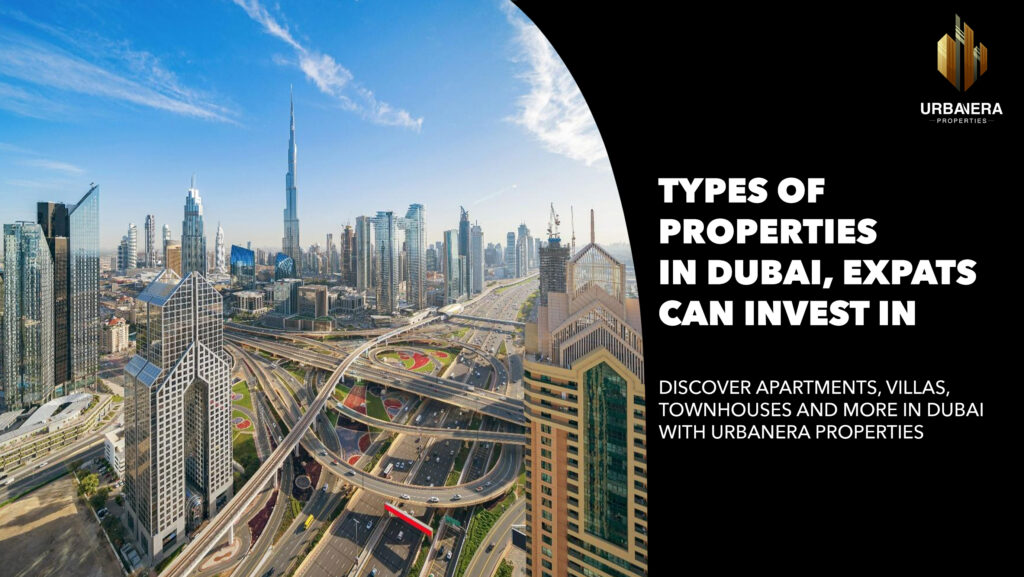
Dubai’s luxury real estate market offers a diverse range of properties catering to various lifestyles and investment goals. Here’s a breakdown of some prominent property types that expats can explore:
- Apartments: Luxury apartments in Dubai range from studios in prestigious high-rises to sprawling penthouses boasting panoramic cityscapes. Gated communities with state-of-the-art amenities like infinity pools, gyms, and concierge services are popular choices.
- Villas: For those seeking a more independent lifestyle, luxurious villas offer unparalleled privacy and space. Options include waterfront villas with private pools and gardens, extravagant mansions in exclusive communities, or contemporary townhouses perfect for families.
- Branded Residences: Dubai is a haven for luxury brands, and this extends to the real estate market. Expats can invest in residences developed in collaboration with renowned brands, offering a unique blend of branded luxury and impeccable apartments.
- Beachfront Properties: Dubai’s stunning coastline presents an array of beachfront properties. These can be opulent villas with private beach access, luxurious apartments within beachfront developments, or exclusive properties on man-made islands like Palm Jumeirah.
- Mixed-Use Developments: Modern living is all about convenience. Mixed-use developments offer a unique proposition, integrating residential units with high-end retail outlets, restaurants, entertainment facilities, and even office spaces within a single complex.
Beyond the property type, expats can also consider freehold vs. leasehold options.
- Freehold: This grants complete ownership of the property and the land it sits on, offering maximum flexibility and potential for long-term value appreciation. Most luxury properties in Dubai fall under freehold ownership.
- Leasehold: This grants the right to use the property for a specific period, typically ranging from 60 to 99 years. While offering a potentially lower entry point, leasehold properties come with restrictions and renewal considerations.
Expat’s Guide: How to Buy Property in Dubai
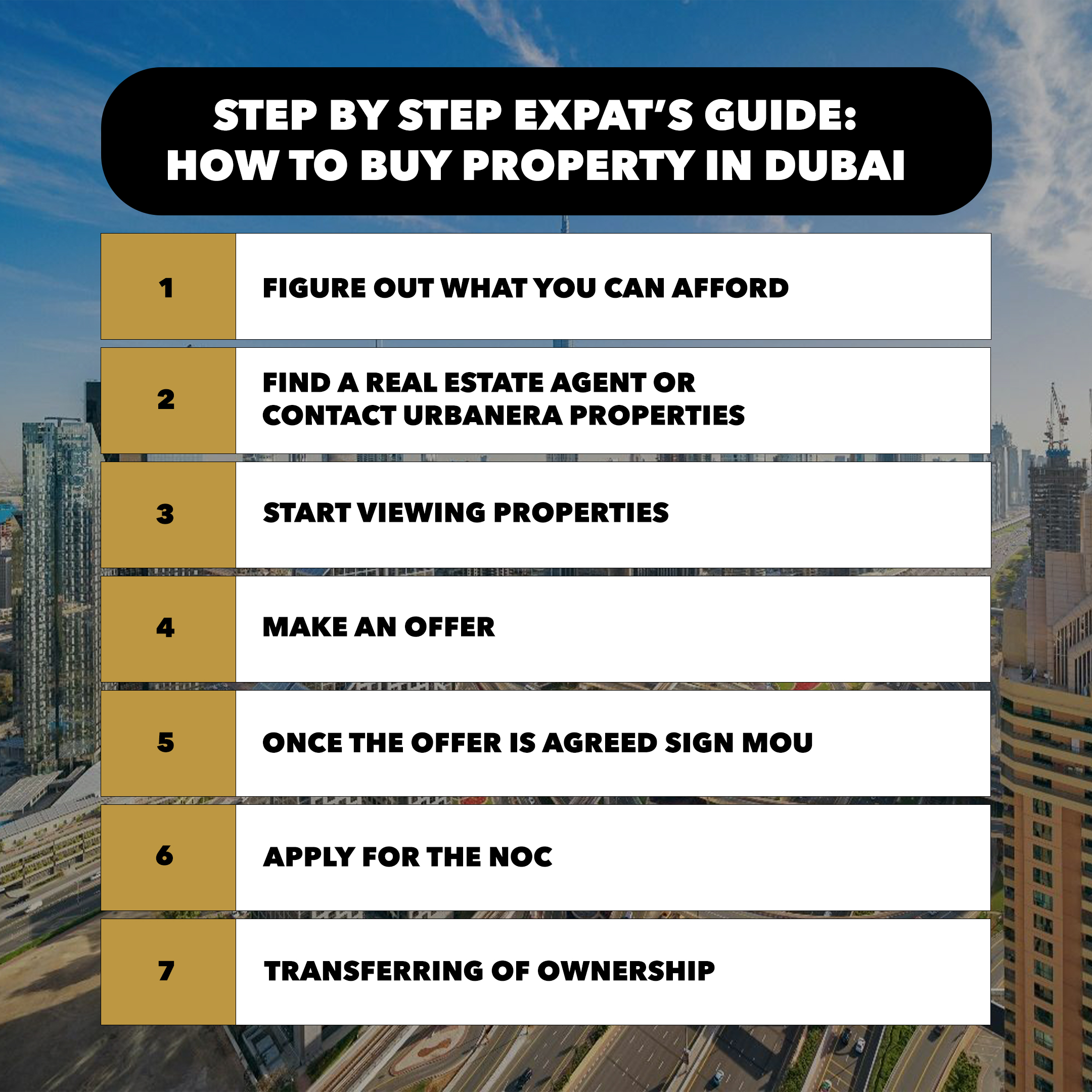
The process of buying property in Dubai as an expat is relatively straightforward, but it’s crucial to follow the correct procedures to ensure a smooth transaction. Here’s a step-by-step guide to navigate your purchase:
- Appoint a Real Estate Agent: Partnering with a Urbanera Properties an experienced real estate company specializing in luxury properties. They can guide you through the entire process, identify suitable properties, handle negotiations, and ensure legal compliance.
- Conduct Market Research: Conduct independent market research to understand current trends, property values in your chosen area, and potential rental yields.
- Choose Your Property: Once you’ve identified potential properties, schedule viewings to get a first-hand feel for the space, amenities, and surrounding area.
- Make an Offer: If you find your dream property, your agent will help you make a formal offer. Negotiations are customary, so be prepared to discuss the price and terms.
- Finalize the Sale: Once all legal aspects are addressed, you’ll sign the sale contract and pay the agreed-upon price. Registration fees and government charges will also apply.
Congratulations! You’re now the proud owner of luxury real estate in Dubai.
What Documents are Required for Expats to Buy Property in Dubai?
As an expat purchasing property in Dubai, ensure you have the necessary documentation to ensure a smooth transaction. Here’s a breakdown of the essential documents you’ll likely require:
- Passport: A valid passport is mandatory, and copies of relevant pages may be required during the application process.
- Residency Visa (if applicable): While not always mandatory, having a residency visa demonstrates commitment and simplifies procedures. Some investor visas are linked to property value.
- Proof of Funds: Depending on the purchase method (cash or mortgage), you may need to provide bank statements or other documents demonstrating your financial capacity to complete the transaction.
- No Objection Certificate (NOC): In some cases, the developer or seller may require an NOC from relevant authorities confirming there are no outstanding dues on the property. Your agent can assist with this.
- Sale Purchase Agreement (SPA): This is the formal agreement outlining the terms and conditions of the sale, including the purchase price, payment schedule, and completion date.
- Emirates ID (if applicable): If you have obtained an Emirates ID, this can expedite certain processes.
Property Taxes for Expats in Dubai
One of the significant advantages of investing in Dubai’s real estate market is the absence of traditional property taxes. Expats enjoy a tax-free haven when it comes to property ownership.
However, there are a few other fees associated with property ownership in Dubai that expats should be aware of:
- Registration Fees: A one-time registration fee is payable to the Dubai Land Department (DLD) upon property purchase. This fee typically ranges from 4% to 5% of the property value.
- Service Charges: Most residential communities in Dubai levy service charges to cover maintenance of common areas, security, amenities, and waste disposal. These charges vary depending on the community and the level of amenities offered.
- Rental Income Tax: If you intend to rent out your property, a 5% tax is levied on the gross rental income. However, various exemptions may apply.
Best Expat-Friendly Communities in Dubai
Dubai offers a diverse range of communities, each catering to distinct lifestyles and preferences. Here’s a glimpse into some of the most popular and expat-friendly communities:
- Meydan Dubai: Meydan area has emerged as a best area for investment with high future growth potential. Explore apartments for investment in Meydan Dubai.
- JVC: Jumeriah Village Circle is all time favourite for investors. Find apartments in JVC.
- Downtown Dubai: The beating heart of the city, Downtown Dubai offers a vibrant atmosphere, iconic landmarks like the Burj Khalifa and Dubai Mall, and a plethora of high-end apartments and luxury residences.
- Dubai Marina: For a waterfront lifestyle, Dubai Marina boasts stunning views of the Dubai Marina yacht harbor, a lively atmosphere with world-class restaurants and cafes, and a range of luxury apartments and penthouses.
- Palm Jumeirah: This world-renowned man-made archipelago offers a unique island living experience with luxurious villas, beachfront apartments, and a variety of high-end hotels and resorts.
Beyond these popular options, Dubai has numerous other communities that cater to expat preferences. Consider factors like proximity to work, family needs, desired amenities, and budget when selecting your ideal community.
What are the Benefits of Living in an Expat-Friendly Community in Dubai?
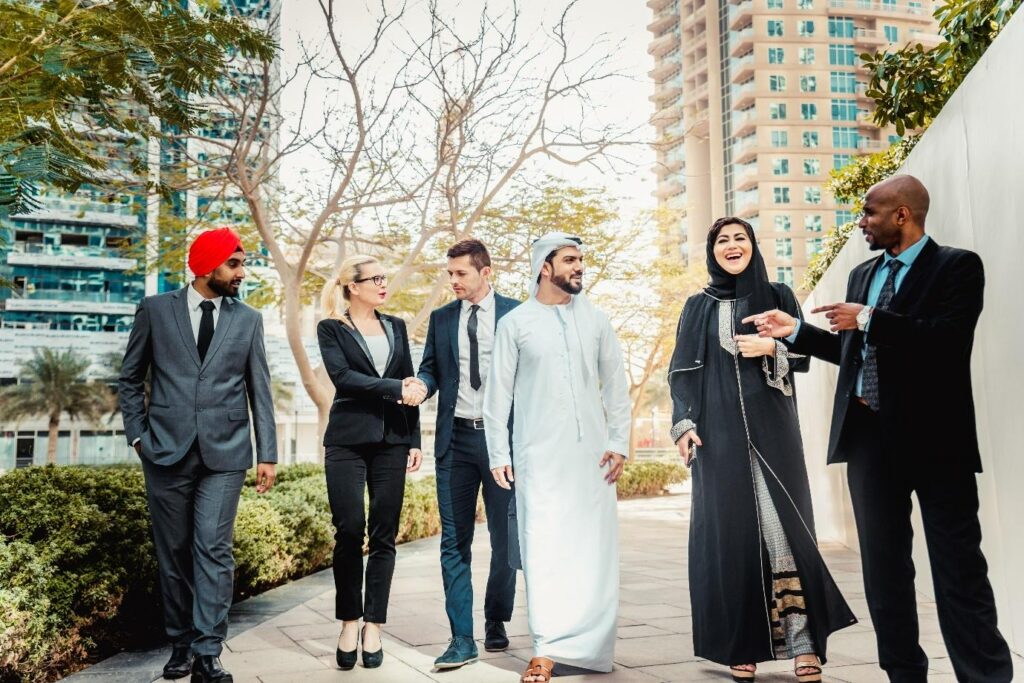
Choosing an expat-friendly community in Dubai offers a multitude of advantages that can significantly enhance your experience as a newcomer. Here are some of the benefits:
- Simplified Settling-In Process: Expat-friendly communities often have a high concentration of international residents, fostering a welcoming and supportive environment. This can ease the transition process, as you’ll encounter others navigating similar experiences and potentially share your native language or cultural background.
- Readily Available Resources: These communities may have established support networks, social clubs, or online forums specifically catering to expats. This can provide access to valuable information on local customs, navigating everyday life, recommendations for services, and even potential opportunities to connect with others from your home country.
- Language Accessibility: Expat-friendly communities are likely to have businesses and facilities with staff who speak multiple languages, making daily interactions and errands more manageable. This can significantly reduce initial communication hurdles and contribute to a smoother integration into your new surroundings.
- Social Connections and Networking: Living amongst a diverse group of expats provides ample opportunities to build friendships and expand your social circle. This can help combat feelings of isolation and loneliness, especially during the initial adjustment period. You can connect with people who share similar interests or professional backgrounds, fostering a sense of belonging and community.
- Cultural Exchange and Exploration: Expat communities offer a vibrant tapestry of cultures and traditions. Through interaction with your neighbours, you can experience different customs, cuisines, and ways of life, enriching your overall experience and fostering a more open-minded perspective.
Why Dubai is a Best City for Expats
Dubai’s allure for expats extends far beyond its captivating luxury real estate market. Here are some of the compelling reasons why Dubai has become a top destination for international residents:
- Thriving Economy and Job Market: Dubai boasts a diversified and robust economy, offering ample employment opportunities across various sectors. The tax-free environment and focus on innovation attract businesses and entrepreneurs, creating a dynamic job market for skilled professionals.
- Safety and Security: Dubai is renowned for its safety and security. Strict law enforcement and a low crime rate provide peace of mind, allowing expats and their families to feel secure and comfortable in their surroundings.
- Multicultural Environment: Dubai is a melting pot of cultures, with a significant portion of its population comprising expats from around the world. This fosters an inclusive and tolerant atmosphere, where diverse ethnicities and religions coexist peacefully.
- World-Class Infrastructure: Dubai has invested heavily in infrastructure development, boasting state-of-the-art transportation networks, modern healthcare facilities, and a wide range of educational institutions offering international curriculums.
- Tax-Free Haven: As previously mentioned, Dubai offers a tax-free haven for individuals and businesses. There is no income tax, corporate tax, or capital gains tax on property sales. This translates to significant financial advantages for expats.
- Lifestyle Paradise: Dubai offers an unparalleled lifestyle experience. From world-renowned restaurants and luxurious shopping malls to pristine beaches, thrilling desert adventures, and a vibrant nightlife scene, Dubai caters to all interests and preferences.
For expats seeking a dynamic, cosmopolitan city with exceptional career prospects, a secure environment, and a luxurious lifestyle, Dubai presents an irresistible proposition.
Things to Consider While Choosing the Right Expat-Friendly Community

With Dubai’s diverse array of expat-friendly communities, selecting the perfect one requires careful consideration of your individual needs and preferences. Here’s a framework to guide you, how to select communities in Dubai.
- Lifestyle Preferences: Consider whether you crave a bustling downtown atmosphere, a serene beachfront haven, a family-oriented community with parks and schools, or a close-knit community with a specific cultural concentration.
- Budget: Luxury properties are prevalent in Dubai, but there’s a range of options within each community. Determine your budget comfort level and explore communities that offer properties that align with your financial constraints.
- Family Needs: If you’re relocating with a family, prioritize communities with good schools, parks, and family-friendly amenities. Safety and proximity to essential services are also crucial factors.
- Commute Considerations: Dubai offers various transportation options, including Dubai metro, buses, private taxis, but traffic congestion can occur. Evaluate the community’s proximity to your workplace or desired areas to minimize commute times.
- Social Scene: Do you seek a vibrant social scene with numerous restaurants and nightlife options, or a more peaceful and secluded environment? Consider the community’s overall character and the types of activities it offers.
Once you’ve identified your priorities through the above framework, delve deeper into your shortlisted communities. Here are some additional steps to refine your selection:
- Research Online: Numerous online resources showcase Dubai’s communities, providing details on amenities, demographics, and property listings. Utilize these resources to gather comprehensive information.
- Community Visits: Plan visits to your shortlisted communities to experience them first-hand. Walk around neighbourhoods, visit local shops and cafes, and get a feel for the overall atmosphere.
- Talk to Residents: Interact with current residents, especially other expats, to gain valuable insights into the community’s pros and cons, the local vibe, and potential hidden gems. Real estate agents can also connect you with residents.
- Consider Long-Term Plans: While your current needs are important, factor in potential future changes. If you plan to start a family, prioritize communities with good schools. If you anticipate frequent business travel, consider airport proximity.
Factors to Consider Before Buying Property or Investing in Dubai for Expats
While Dubai’s real estate market offers enticing opportunities, careful consideration of various factors is essential before making an investment. Here’s a checklist for expats to ponder:
- Investment Goals: Clearly define your investment goals. Are you seeking a permanent residence, a vacation home, or purely a rental property for passive income? This will influence the type of property and location you choose.
- Market Research: Conduct thorough market research to understand current property trends, rental yields in your chosen area, and potential future developments that might impact property values.
- Financial Planning: Carefully assess your financial situation. Factor in the purchase price, ongoing costs like maintenance fees and service charges, potential mortgage payments, and any additional expenses associated with property ownership.
- Exit Strategy: Consider your exit strategy. Dubai’s real estate market is dynamic, so plan for how you might sell or rent out your property in the future. Understand the legalities and any associated fees.
- Cooling-Off Period: Be aware of Dubai’s “cooling-off period” which allows you to withdraw from a sale agreement within a specific timeframe, typically seven days.
- Legal and Regulatory Framework: Familiarize yourself with Dubai’s legal and regulatory framework for property ownership. Seek guidance from a qualified lawyer or real estate broker specializing in Dubai real estate to ensure you understand your rights and obligations.
- Long-Term Commitment: Investing in Dubai real estate is a long-term commitment. Consider if you plan to stay in Dubai for an extended period to maximize your investment returns.
How Safe is Dubai for Expats?
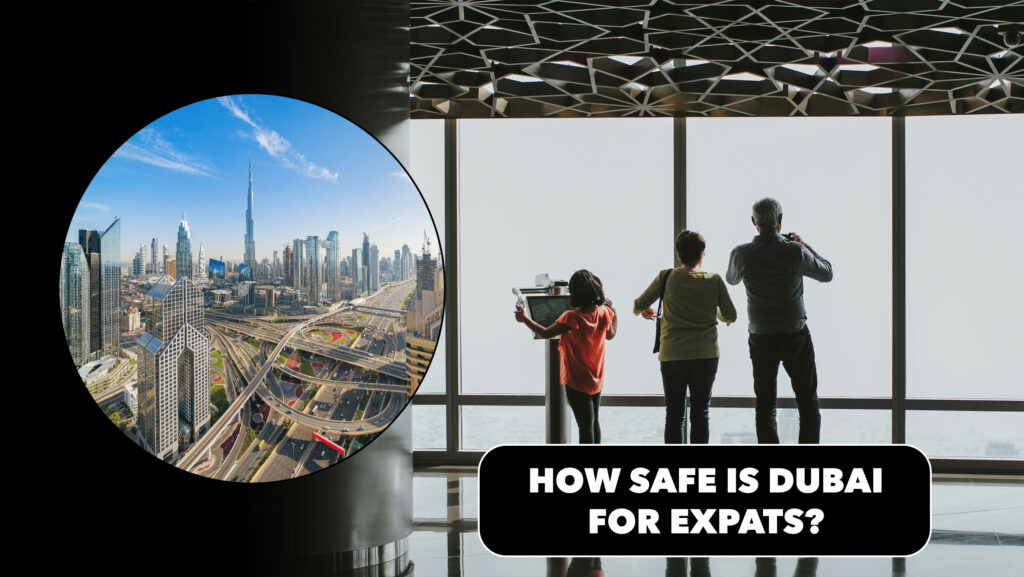
Dubai has a well-deserved reputation for being a safe city for expats and tourists alike. Here’s a some of the factors to its safety:
- Strict Law Enforcement: Dubai enforces strict laws and regulations, with a zero-tolerance policy for crime. A visible police presence deters criminal activity and fosters a sense of security.
- Low Crime Rates: Dubai boasts significantly lower crime rates compared to many major cities around the world. Violent crime is rare, and petty theft is the most common issue, which can be mitigated by basic precautions.
- Safe Public Spaces: Public areas in Dubai, including parks, beaches, and transportation systems, are well-maintained and patrolled, ensuring safety for residents and visitors.
- Inclusive and Tolerant Society: Dubai’s multicultural environment fosters tolerance and respect. This reduces social tensions and contributes to a peaceful and secure atmosphere.
Key Takeaways and Conclusion
Dubai’s captivating luxury real estate market presents an alluring proposition for discerning expats seeking a lifestyle investment. This guide has equipped you with the knowledge and essential considerations to navigate this exciting landscape.
Here are the key takeaways to remember:
- Dubai offers a thriving economy, tax-free haven status, and high rental yields, making it an attractive investment destination.
- Understanding your investment goals, conducting market research, and securing expert advice are crucial for success.
- A diverse range of property types caters to various lifestyles and budgets, from luxurious apartments and waterfront villas to signature branded residences and beachfront havens.
- Owning property in Dubai is a relatively straightforward process, but following the correct procedures and legal requirements is essential.
- Expat-friendly communities offer a welcoming environment, simplified settling-in processes, and opportunities for social connection.
- Dubai’s safety, security, multicultural environment, and world-class infrastructure make it a top destination for expats seeking a dynamic and rewarding lifestyle.
FAQs: Expat’s Guide to Luxury Real Estate in Dubai
Can expats buy property in Dubai?
Yes, expats can absolutely buy property in Dubai. In fact, Dubai actively encourages foreign investment in its real estate market. There are freehold areas where expats can own property outright and enjoy full ownership rights.
What are the benefits of buying luxury real estate in Dubai?
There are several benefits to consider:
- Tax-free haven: Dubai offers a tax-free environment, with no income tax, corporate tax, or capital gains tax on property sales. This translates to significant savings and higher returns on your investment.
- Strong rental yields: Luxury properties in Dubai typically deliver high rental yields, making them a lucrative source of passive income.
- Thriving economy: Dubai boasts a robust and diversified economy, fostering stability and growth, potentially leading to property value appreciation.
- Lifestyle investment: Owning luxury real estate in Dubai isn’t just an investment; it’s a lifestyle choice. You’ll gain access to world-class amenities, a vibrant social scene, and unparalleled experiences.
What are some of the best areas for expats to live in Dubai?
Dubai offers a diverse range of expat-friendly communities, each catering to distinct preferences. Here are a few popular options:
- Meydan Dubai, Jumeirah Village Circle, Golf City, Downtown Dubai, Dubai Marina, and Palm Jumeirah.
What are the costs involved in buying property in Dubai?
Besides the property purchase price, there are some additional costs to factor in:
- Registration fees: A one-time fee paid to the Dubai Land Department (DLD).
- Service charges: Most communities levy service charges to cover maintenance and amenities.
- Rental income tax: If you plan to rent out your property, a 5% tax may apply (with potential exemptions).
Do I need a visa to buy property in Dubai?
While not mandatory for all purchases, securing a residency visa demonstrates commitment and simplifies the buying process. Some investor visas are linked to property value.
